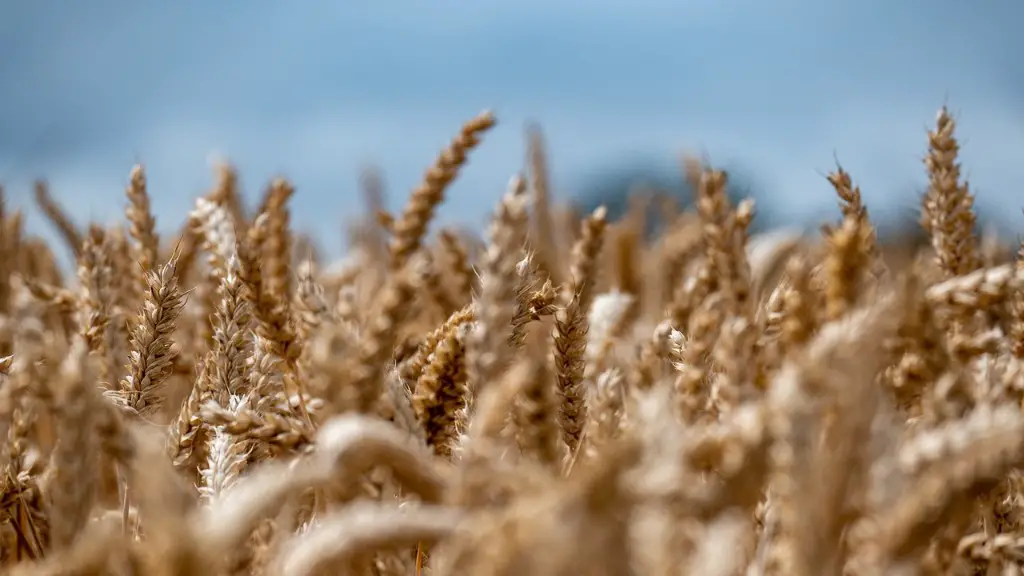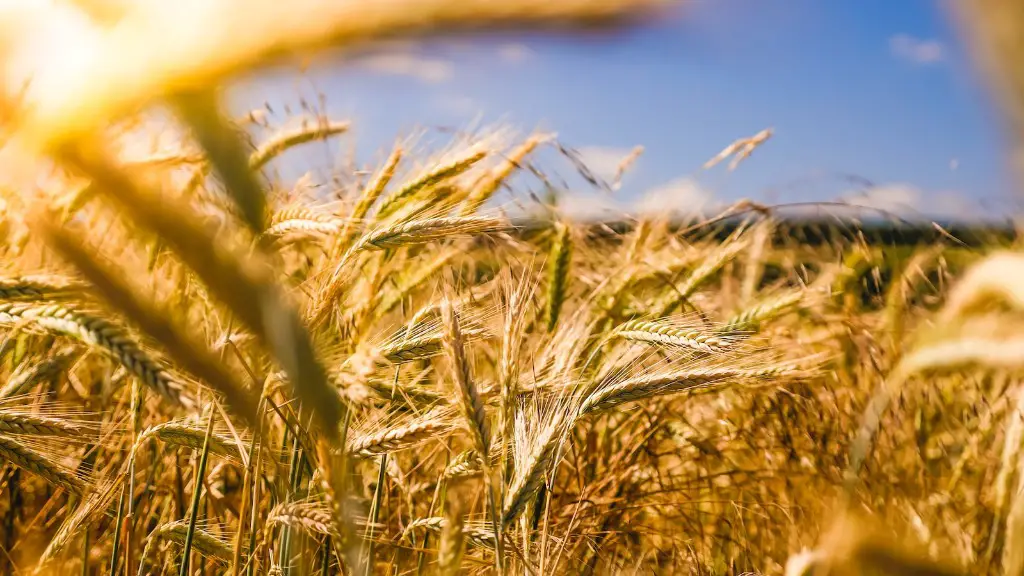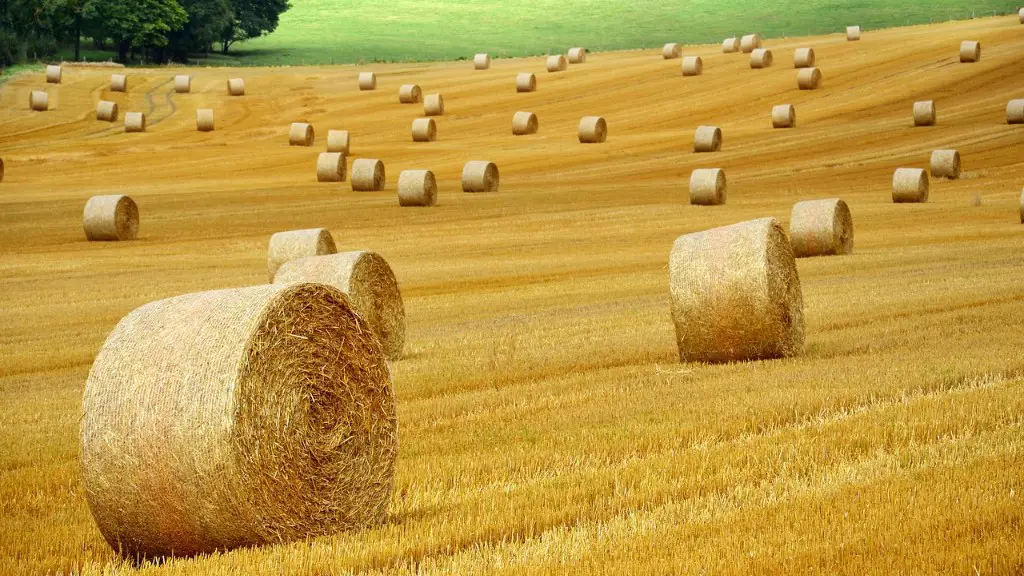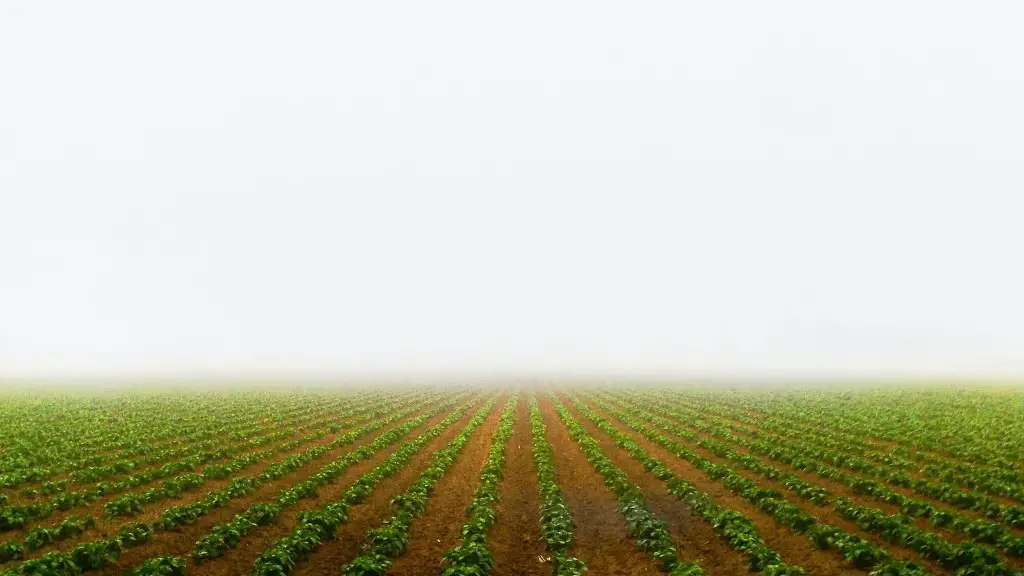Systematic agriculture is the practice of producing crops and livestock through the coordinated application of anthropogenic inputs. This includes optimizing crop yields, increasing disease resistance, and developing crop management strategies. This farming practice is vital for agricultural production and can contribute to food security, economic development and sustainability. Systematic agriculture is a form of adaptation to ever-changing environmental conditions, such as climate or soil type, and requires the adoption of new technologies and practices in order to remain competitive.
The purpose of systematic agriculture is to yield the highest possible crop yields with the least amount of inputs. This practice involves various measures, including planning the rotation of different crops in order to maintain soil fertility, selecting and planting the most suitable varieties of crops for the particular regional conditions and practices for controlling weeds and pests. In addition, this practice may require the implementation of new technologies and the use of more efficient farming methods.
Systematic agriculture also involves the proper use of fertilizers and irrigation systems in order to maximize crop yields. Fertilizers are usually applied based on the type and amount of nutrients needed for the particular crop, such as nitrogen, phosphorus, and potassium. Irrigation systems are used to evenly distribute water to the crops, and this can lead to efficient water management and conserving of water. Proper irrigation requires knowledge of the soil and climate, as well as the use of appropriate equipment and techniques.
It is not enough to simply use theoretical approaches and administrative models in order to practice systematic agriculture. The farmer needs to be able to analyze the agricultural environment and adapt their practices accordingly. This requires knowledge of soil type, climate, available inputs, pests and disease management, and technological advances. A farmer also needs to be aware of the different crop varieties in their area and how to use them most efficiently.
Systematic agriculture is a complex practice which requires knowledge and expertise. In order to be successful, it is important to be well informed of the various strategies available and elements which go into farming, such as soil and climate conditions and pest management. It is also necessary to have access to the necessary inputs, such as fertilizers, high-quality seeds, and irrigation systems. Systematic agriculture requires the adoption of new technologies in order to remain competitive and achieve a successful, sustainable business.
Impact of Systematic Agriculture
Systematic agriculture has a major impact on the overall food security, economic development and environmental sustainability. The success of systematic agriculture depends on the adoption of new technologies and efficient use of inputs. This can result in increased crop yields, increased market access, and improved food safety. It can also enable farmers to participate in the global economy, through increased trade and access to resources and markets, which can eventually lead to increased food security.
Systematic agriculture is not only beneficial for farmers and producers, but it also improves environmental sustainability. This is achieved by using efficient inputs and practices and reducing soil erosion, water usage and nutrient runoff. As crops become more efficient, this will also reduce the amount of land required for crop production and could lead to improved soil quality.
The effects of systematic agriculture on global food security and economic development are far-reaching and long-term. The shift towards more efficient agricultural techniques shows positive results in the short-term, and is proven to have immense effects on the long-term sustainability of global food security and economic development.
Challenges of Systematic Agriculture
One of the most significant challenges of systematic agriculture is that it is a continuous cycle and requires significant resources in order to remain competitive. This is not only due to the cost of inputs, such as fertilizers and crop varieties, but also due to the need for frequent investments in technology. In order for systematic agriculture to remain competitive, it must be able to compete with traditional farming methods through the introduction of cost-effective, efficient technologies and practices.
In addition, one of the major challenges of systematic agriculture is that it requires significant investments in knowledge and expertise. In order to successfully practice systematic agriculture, farmers must have access to the latest research and technology, as well as have a sound understanding of the local soil, climate, and other conditions. This requires continuous investment in terms of training, equipment and resources.
Along with financial and technical challenges, systematic agriculture also faces social and cultural challenges. Many traditional farmers resist adopting new systems and practices due to their reliance on traditional farming techniques. This resistance can result in limited access to information and resources, or an unwillingness to adopt the necessary input or changes needed to practice systematic agriculture.
Systematic agriculture is a long-term investment which requires careful planning and significant resources. While it is proving to be more efficient and sustainable than traditional farming methods, it faces significant challenges in terms of access to resources and technology, as well as financial and cultural acceptance.
Role of Governments
The role of governments in the practice of systematic agriculture is widely debated. Some argue that governments should play an active role in the promotion and implementation of systematic agriculture, providing the necessary resources and support to ensure the successful transition from traditional farming practices. Others believe that governments should focus on providing access to resources, such as training and technology, and creating the necessary environment for private initiatives to succeed.
In terms of long-term sustainability, governments may play a major role in providing incentives for systematic agriculture by encouraging private investments in research, development and training. Additionally, governments may create schemes to provide subsidies to farmers and producers who adopt new technologies and practices. Finally, governments can play a role in increasing access to information and resources, such as providing access to libraries, training, and Internet.
The role of governments in the practice of systematic agriculture is multi-faceted and complex. On one hand, governments can provide the necessary resources, such as training and technology, to facilitate the transition to systematic agriculture. On the other hand, governments can also create the necessary environment for private investments and initiatives to succeed. Regardless of the approach, it is clear that governments have a major role to play in the successful practice of systematic agriculture.
Economics of Systematic Agriculture
The economics of systematic agriculture are complex and multifaceted. The economic costs and benefits both for governments and for individual producers must be carefully considered in order to be successful. These economic costs and benefits can range from the investment and usage of inputs, such as fertilizer and irrigation systems, to market access and capability of producers to build a successful business.
The economic benefits of systematic agriculture include increased crop yields and profitability, improved access to markets, and increased sustainability and long-term success. The increased crop yields can mean higher incomes for producers, while the improved access to markets may enable farmers to participate in global trade and benefit from increased revenues.
The economic costs of systematic agriculture may include the cost of inputs, such as fertilizer, pesticides and irrigation systems, as well as the cost of knowledge and expertise necessary to achieve a successful business. Additionally, producers may face additional costs in the form of social and cultural challenges, such as resistance to new systems and practices.
The economics of systematic agriculture are complex and involve many factors. While there are many potential benefits, careful evaluation of costs and risks must be considered in order to practice effective, sustainable, and profitable systematic agriculture.
Potential of Systematic Agriculture
The potential of systematic agriculture is immense and could lead to major improvements in global food security and economic development. The optimization of crop yields due to the adoption of new technologies and practices could significantly reduce food insecurity and lead to economic growth and sustainability. In addition, improved access to resources and markets can enable producers to participate in global trade and benefit from increased revenues.
The successful implementation of systematic agriculture can also contribute to environmental sustainability, as improved knowledge and practices can lead to efficient water and land use, as well as reduction of soil erosion and nutrient runoff. This can also lead to energy efficiency, reduced waste and improved soil quality.
The potential of systematic agriculture lies in its ability to improve food security, economic development and environmental sustainability. As more countries and producers adopt systematic agriculture, it is clear that this practice has the potential to revolutionize global agriculture and have an immense, positive impact on food security, economic development and environmental sustainability.





